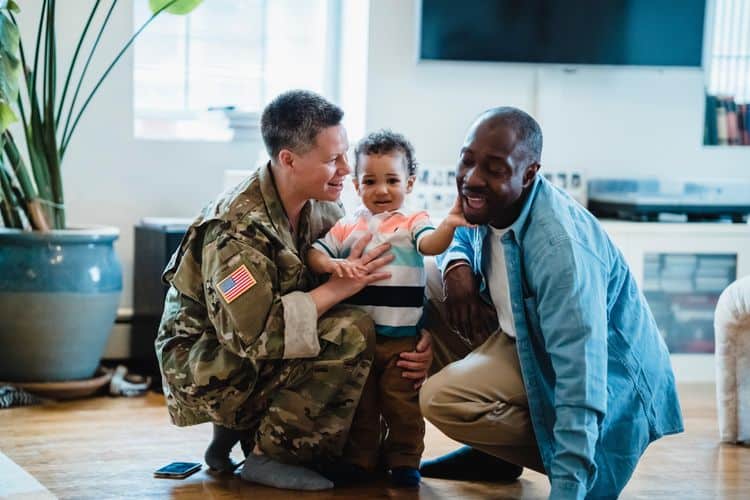It’s not easy to live with ADHD. ADHD is characterized by impulsivity, hyperactivity, restlessness, forgetfulness, and inattention. A child with ADHD can try a parent’s patience as hyperactivity and inattention can cause stressful situations.
To assist a child with ADHD, a parent should remember the following points.
Try to know your child’s needs.
- Recognize signs of your child’s confidence loss, such as a refusal to try new things, a loss of interest in daily activities or past claims, and withdrawal from friends and family. Try to comprehend their point of view and assist them in resolving their issue.
Teach them positive self-talk
- With ADHD, it is common for a child to engage in negative self-talk, teach them to make self-assuring statements about themselves, and give genuine compliments to help them see their unique and good qualities.
Seeing your child act out in a disruptive manner can sometimes cause impulsive behavior in parents. Still, a parent must understand the child’s needs and assist them in overcoming ADHD symptoms.
Parenting a Child with ADHD

As a result of ADHD, children tend to be less attentive, hyperactive, and impulsive than expected for their age. Children with ADHD have more difficulty controlling their attention, behavior, emotions, and activities. As a result, they frequently engage in challenging behaviors for parents to manage.
Kids with ADHD, for example, may:
- Seem disoriented
- Seem to be in perpetual motion
- They don’t seem to be listening
- Paying attention is difficult
- not following directions well
- need many reminders to do things
- show poor effort in schoolwork
- have trouble getting organized
Parents may not realize that these behaviors are symptoms of ADHD at first. A child may appear to be simply misbehaving. Parents who have ADHD may feel stressed, frustrated, or disrespected.
How Can Parents Help?
Parenting is as crucial to ADHD treatment as any other aspect. ADHD can be improved or exacerbated by how parents react. You may ask questions like Is ADHD a learning disability? asking questions and learning about ADHD and how to treat it is the best thing you can do for your child.
- Know how ADHD affects your child. Every child is unique. Determine your child’s ADHD-related issues. Some children need to improve their attention and listening skills. Others must enhance their ability to slow down. Consult your child’s therapist for advice on how to help your child practice and improve.
- Take it one step at a time when teaching your child. Choose one thing to concentrate on. Recognize your child’s efforts. Consult with your child’s teacher to determine whether your child requires an IEP or 504 plan. Keep in touch with teachers frequently to find out how your child is doing. Collaborate with the teacher to help your child succeed.
How to Discipline a Child with ADHD
Give Effective Instructions
A child with short attention spans requires extra assistance in following directions. They frequently do not hear instructions in the first place. To improve your instructions, begin by capturing your child’s full attention. Before making requests, turn off the television, make eye contact, and place a hand on your shoulder.
Avoid broad assignments such as “clean your room.” Instead, create a checklist or assign one task at a time, such as making the bed, putting dirty clothes in the hamper, or replacing books on the shelf.
- Ask your child to repeat what they heard to ensure they fully understand.
Children with ADHD respond positively to praise, and providing frequent feedback is critical. Make your compliments personalized. Instead of saying, “Nice job,” say, “Great job putting your dish in the sink when I asked.” Praise your child for following instructions, playing quietly, and sitting still; this will encourage them to do so in the future.
Use Time-Out When Necessary
When your child is overstimulated or frustrated, teach them to go to a quiet place to calm down. Make a comfortable space for them and gently lead them there, not as punishment but as a way to relax. Your child will eventually learn to go to this location on their own before getting into trouble.
Treatment for ADHD in Children
There are several ADHD treatment options available to help your child or teen manage their symptoms. Many ADHD symptoms include difficulty focusing, being easily distracted, and sitting still. These behaviors can lead to issues at school, at work, and with friends. However, there is good news: ADHD can be treated. Treatment options include therapy, medication, or a combination of the two. And the treatment does not have to end there.
Children’s ADHD Medication
According to studies, approximately 80% of children with ADHD treated with stimulants improve significantly once the proper medication and dose are determined.
Two forms of stimulants are available:
Immediate-release
- Medications are typically administered every 4 hours as needed. They are the least expensive of the medicines. Extended-release medications generally are taken only once in the morning.
Extended-release
- Medications are typically administered once in the morning. Children who take stimulants in extended-release forms can avoid taking medication at school or after school. Extended-release capsules and tablets should not be chewed or crushed. Extended-release capsules made of beads can be opened and sprinkled onto food for children who have difficulty swallowing tablets or capsules.
When stimulant medications fail to work or cause bothersome side effects, non-stimulants can be tried.
How to Help a Child with ADHD Without Medication
Behavioral therapy for ADHD is a structured discipline strategy that teaches children new ways of behaving by rewarding desired behavior, such as following directions and eliminating undesirable actions, such as losing homework. According to the American Psychological Association, behavior therapy should be the first line of treatment for children under five with ADHD. It can also help older children.
Arcara Personalized Psychiatry is a group of specially trained nurse practitioners (NPs) who practice personalized psychiatry. All have extensive experience diagnosing and treating psychiatric disorders. Our team has over 30 years of experience working in psychiatric care in Boston.
The first time you meet us
When we first meet, we’ll ask you to fill out a few simple forms to protect your privacy and ensure that you understand our practice’s procedures and policies. You can also pre-fill the documents by downloading them from our online patient portal. This initial meeting will last 45 to 60 minutes. We will ask about your medical and family history and previous psychiatric treatment to determine your specific needs. More information about ADHD can be found on our blog.



